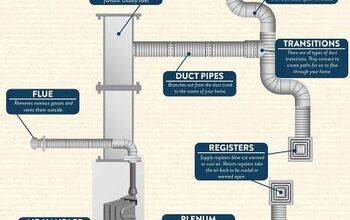2022 Water Softener Installation Cost

Water softening systems are necessary at times, especially if you live on a property with well water. The system can help to make the water more usable, especially if there are a high amount of minerals in your water. But, how much does this cost?
The average water softener installation cost is $1,500, but ion exchanger systems cost $1,750 to install. Salt-free water softeners cost $2,400 to install, and magnetic water softeners average $400 for installation. The average water softener rental cost is $37 per month, but you’ll only spend $200 per year on average to run a water softener.
Professionals frequently sell or promote specific products with which they have greater experience or encounter fewer issues. However, you may always get one from a local dealer or home improvement store. The minerals that produce hard water are either removed or neutralized by these methods. We’ll discuss the cost of installing such a system below.
Need a Water Treatment and Purification System Installed or Replaced?
Get free, zero-commitment quotes from pro contractors near you.

Water Softener Price
Water Softener Installation Cost | ||
| Low | Average | High |
| $500 | $1,500 | $6,000 |
On the low end, you can expect to pay about $500; however, most people will pay around $1,500 to install a water softener system. This can cost as much as $6,000 and sometimes even higher in some instances.
The price you pay will ultimately depend on the type as well as the capacity that it has. We’ll also talk about the differences in the types so that you can best judge what would fit for your family.
Water Softener Prices By Type
Prices By Type | ||
Softener Type | Average Range | Total Install Cost |
| Ion Exchangers (Salt And Brine) | $300 -$1,000 | $500 – $2,000 |
| Magnetic | $200 – $400 | $200 – $600 |
| Reverse Osmosis | $100 – $1,800 | $1,000 – $2,800 |
| Salt Free | $500 – $3,000 | $800 – $4,000 |
| Water Distiller | $50 – $1,500 | $50 – $2,000 |
Ion Exchangers
Ion exchangers or conventional water softeners are the most popular variety, and they cost $500 to $2,000 to install. They remove the hard minerals from the system by switching off an ion from the entering hard water with salt and an exchange medium. It has no discernible effect on the salt content.
- They have a long track record of performing admirably in most households.
- Installing it is inexpensive.
- Regular salt refills are required, which raises the expense of ownership.
Magnetic/Electronic Softener Cost
There is a new (and controversial) water softener on the market, the magnetic water softener, which costs $200 to $600. Some research on magnetic devices shows that they are ineffective. Regardless, a large number of consumers claim to be satisfied.
- This is a plug-in device that connects to your current plumbing.
- No pipe cutting is necessary for this DIY installation.
- There is little evidence that they function.
Reverse Osmosis Filtration
The typical cost of installing a reverse osmosis filtering system is $1,500. However, they’re more than just a water softener; they’re a complete filtration system that removes minerals as well as other hazardous contaminants.
- Not only does it filter hardness from water, but it also filters it for drinking.
- This component is frequently used in conjunction with other softening components.
- As a point-of-use (under the sink) unit.
Salt-Free Potassium Water Softener Price
Installing a salt-free water softener might cost anywhere from $800 to $4,000. This is because they operate by neutralizing the ions and preventing them from building up as they pass through your pipes, rather than eliminating the calcium and magnesium. This, however, will not prevent them from settling in areas where the water is calm.
- Septic tanks, the environment, and those on low-sodium diets will all benefit.
- Significantly increased operational expenditures, as well as a minor increase in up-front spending.
- Potassium is more expensive than sodium.
Water Distiller
Installing a water distillation system might cost anything from $150 to $900. They function by evaporating water at temperatures close to boiling, which separates the water from heavy metals and hard minerals.
- Remove only a portion of the chemicals.
- With a variety of countertop styles to choose from, DIY installation is simple.
- They work at a snail’s pace, making them solely suited for producing drinking water.
Well Water Softener System Cost
The cost of a well water softener system varies based on the kind of water, but it typically costs $500 to $1,500 more than a home with municipal water softening. A chlorine injector and an iron removal step are frequently seen in well water. A pre-sediment filter is also included.
- Due to varied demands, costs are highly variable.
- Frequently includes a pre-filter and additional accessories that most households do not require.
- A professional well exam is required.
Water Softener Price Comparison By Capacity
Price By Capacity | ||
Grain Per Gallon | Softener Capacity (Grains) | Price Range |
| 0 – 3,500 | 24,000 | $300 – $500 |
| 3,501 – 4,500 | 32,000 | $400 – $600 |
| 4,501 – 6,850 | 48,000 | $500 – $800 |
| 6,851 – 9,150 | 64,000 | $600 – $1,200 |
| 9,151 – 11,500 | 80,000 | $1,300 – $2,000 |
The price of a water softener is determined by the unit’s size and the model’s quality. For example, a 33,000-grain softener costs approximately $350 and can manage a 1 to 5-person household. A high-end water softener with a grain capacity of 75,000 grains per gallon can set you back $1,800.
How To Size A Water Softener For A Home
Grains-per-gallon (GPG) is a unit of measurement for water softeners (GPG). To figure out how big a water softener you’ll need for your household, do the following:
- Multiply 90 by the number of persons in your house. The average amount of water consumed per person each day for washing, drinking, and cooking is between 80 and 100 gallons.
- Multiply the result by your water’s hardness. In the United States, the average number of grains per gallon is 10; however, it can range from 0 to 17. The majority of towns make their water hardness information available on the internet. A family of four, for example, in a region with an average water hardness of 10.
Dual Tank Softener Price
Compared to single tank softeners, dual tank softeners are more expensive and can cost up to $5,000. However, traditional salt, salt-free, and reverse osmosis systems with twin tank designs are available.
There are two mineral tanks in a dual tank water softener. This removes the need for downtime while one tank is being recharged. It also provides for greater efficiency by reducing waste and reducing the amount of salt required.
Whole House Water Softener Installation Cost
Installing a water softener might cost anywhere from $100 to $1,000 or more. It depends on the sort of material you’re using, as well as its intricacy and accessibility.
Installing an essential under-counter device, for example, might take about 30 minutes and cost $100. Whereas a complete home system that requires new pipes and fits into an already crowded utility closet would cost around $2,000, a whole house system that requires new pipes and fits into an already tight utility closet would cost about $1,500.
Cost To Replace Water Softener
The cost of removing and disposing of a water softener adds $50 to $200 to the total cost of installation. However, in certain situations, you may be able to save money on labor since the pipes are already in place from a prior installation.
Water Softener Rental Costs
A water softener can be leased for $25 to $50 per month. Salt and inspections are frequently included with these contracts. Repairs and other components, such as a whole-house filter, raise the cost.
Water Softener Service & Maintenance Costs
Inspection, flushing and cleaning, and salt refills are all included in annual maintenance contracts, costing $100 to $300 each year. Consider these upkeep expenses if you want to handle it yourself and wait for problems to arise:
- Water treatment repairs cost: $150-$900
- Salt: $5-$8 per 40 lb. bag
- Potassium: $50-$70 per 40 lb. bag
- Resin: $90-$130 per bag
- Cleaner: $8-$20 per container
- Rust remover: $5-$10 per container
Inspect the brine tank every three to four months. Bridging might occur as a result of salt buildup. Use a pole or a broom handle to break it apart. You may need to empty, clean, and refill the tank on occasion. As part of your annual maintenance, do this.
Home Water Softener Cost Factors
When you have a system installed, you may anticipate the following items to be included in the cost:
- Equipment, materials, and employees are transported to the working site.
- Preparation for the job. This should include safeguarding existing buildings, finishes, and so on.
- Following the conclusion of the operation, clean-up and debris removal are required. This does not usually refer to an old system but rather to the shambles created by employees installing the new one.
- In general, the following items are not included:
- In addition, any alterations to the framing, surface, HVAC, electrical, or plumbing systems are prohibited (aside from the standard installation of the unit).
- Additional expenses if the project is overseen by a general contractor (which adds 15 percent to 23 percent ).
- Fees for any permits or inspections that are required.
DIY Water Softener Installation vs. Hire A Pro
DIY may be the best option for under-sink or countertop installations. These smaller systems frequently come with step-by-step instructions for installation by a homeowner.
Because you’re working with plumbing, a single faulty connection might result in water damage. Always employ a local water softening installer for whole-house systems that require new plumbing.
How Much Does It Cost To Install A Water Softener System By Yourself?
You may anticipate spending the price of your water softening system ($500 to $3,000) plus the cost of a few handy items ($5 to $25) if you avoid installation fees.
How Does A Water Softener Work?
A mineral tank, a brine tank, and a control valve are the three essential water softener components. In smaller installations, the mineral tank and brine tank may be combined into one cabinet, one within the other.
Hard water enters the mineral tank and passes through resin beads after coming from your home’s primary water supply. The ion exchange takes place here. Magnesium and calcium ions in the brine tank are swapped for sodium or potassium ions.
The brine tank holds sodium or potassium, which is used to replenish the resin, and then the control valve regulates when the plastic beads need to be cleaned.
Should I Get A Salt Or Potassium Softener?
You should choose the one that best suits your needs. The hard water minerals are removed from the water by a salt softener. A potassium softener neutralizes the minerals in the water, so they don’t build up in pipes or appliances, but it doesn’t eliminate them.
Why Should I Get A Water Softener?
You should invest in a water softener since softened water has the following benefits:
- Cleans the dishes
- Appliances have a longer life span as a result of this.
- Is kinder to the skin and hair.
How Much Capacity Should My Water Softener Have?
To help you narrow down the capacity of the water softener you pick, use this water softener sizing chart. It is, however, based on averages. This is because the amount of water used by your family and the hardness of the water may differ. For exact results, see a professional.
Inquire with your city’s water department about the hardness of the water. Purchase a test kit for wells that will determine your water’s pH, hardness, and iron level. These kits typically range in price from $10 to $50.
What Water Softener System Can I Get On My Budget?
If your area’s water hardness isn’t extremely high, finding a water softening machine on a budget is doable (above 3 grains per gallon). Size and other factors are also taken into account.
Less Than $500
You may get a simple ion-exchange water softening system that requires manual sediment cleaning in this price range. Magnetic softeners are also available; however, they are not advised for households with high mineral content since they do not soften the water.
$500 To $1,000
A self-cleaning saltwater softening system or a lower-end dual tank or salt-free device may be had for about $1,000. Compact versions are also standard in this category, especially for smaller houses or restricted use.
$1,000 To $3,000+
Dual tank, salt-free, and reverse osmosis water softening systems are available at the higher end. If you have a large home with a lot of water, you may also require a bigger device that utilizes salt or brine, which may cost more.
How Much Does A Water Softener System Cost By Style?
Water softener systems are divided into three primary types based on their size.
- Regular: Units that are large enough to be used in a household.
- Compact: Units that are tiny enough to fit in condominiums, apartments, tiny houses, and other situations where space is restricted.
Some smaller versions are meant to function in bigger houses, although they may need more regular regeneration cycles (flushing mineral accumulation) and maintenance to keep the unit free of particles.
Grain Capacity
The grain capacity of your machine relates to how much mineral content it can extract. Therefore, greater grain capacity devices are required in areas with higher water hardness levels.
When the water contains or surpasses three granules per gallon, it is termed hard (gpg). Water hardness of 10 gpg or higher is standard in areas like Florida, Arizona, and New Mexico.
Energy Efficiency
Water softener systems, at least those that employ salt or brine, do require maintenance. Every few months, you’ll need to replace the minerals in your tank.
On the upper end ($1,000+), devices that minimize maintenance expenses and minimize power use are available.
Need a Water Treatment and Purification System Installed or Replaced?
Get free, zero-commitment quotes from pro contractors near you.

Related Questions
Can I install a water softener myself?
Installing a water softener yourself allows you to take your time and save paying a professional. This may be completed in under an hour if you're merely replacing an outdated water softener. Copper, PVC, CPVC, steel, or PEX plumbing are all options.
How much does a whole house water softener cost?
Water softeners range in price from $300 to $4000, depending on the kind and quality of the softener and the cost of installation. However, some water softeners, such as ones that use salt or potassium, have considerable recurrent expenditures that can quickly pile up.
Is it better to drink hard or soft water?
The result. The majority of people can drink hard or soft water without ill consequences. Some individuals may be concerned about higher salt levels in smooth water, but this may be addressed with a potassium-based softening system.

Heather is a passionate writer who loves anything DIY. Growing up, she learned everything from home repairs to design, and wants to share her tips with you. When she's not writing, she's usually hiking or searching for her next DIY project.
More by Heather Robbins



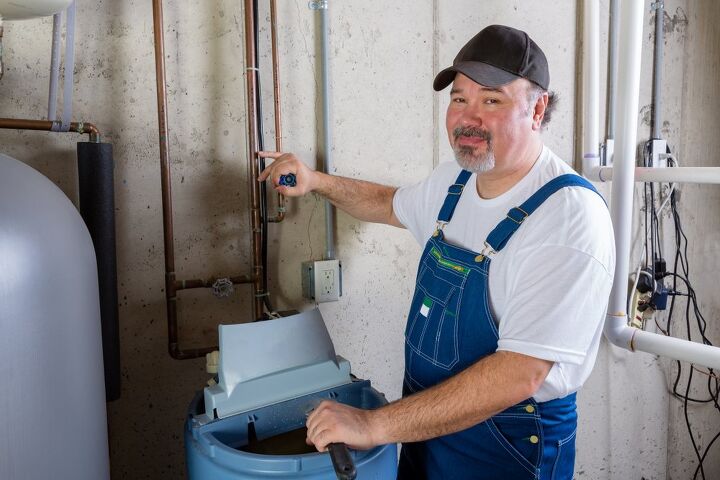
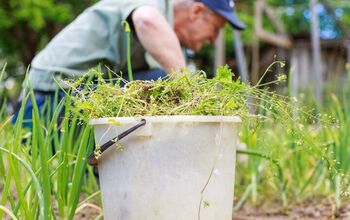





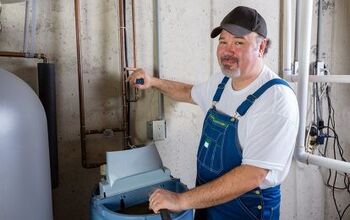

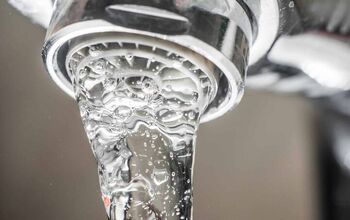
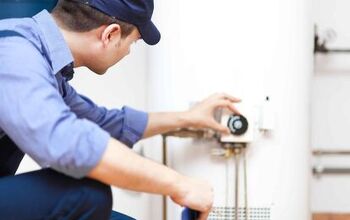
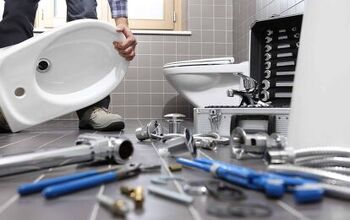
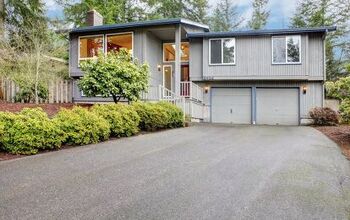




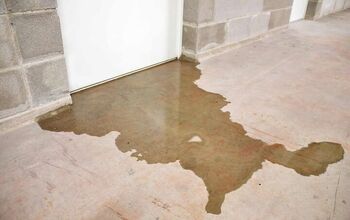
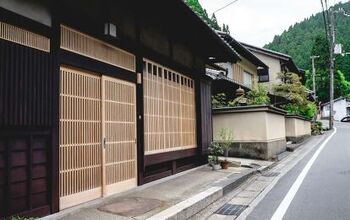
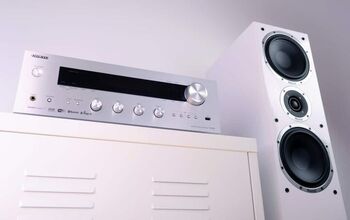

![12 Washing Machine Brands to Avoid [with Recall Data]](https://cdn-fastly.upgradedhome.com/media/2023/07/31/9075781/12-washing-machine-brands-to-avoid-with-recall-data.jpg?size=350x220)
